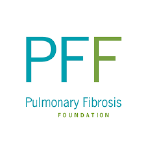
Idiopathic Pulmonary Fibrosis
Idiopathic pulmonary fibrosis, or IPF, is a condition that causes progressive scarring of the lungs. Fibrous scar tissue builds up in the lungs over time, affecting their ability to provide the body with enough oxygen. The cause of the condition is unknown.
IPF affects more than 100,000 people in the United States, with 30,000 to 40,000 new cases diagnosed each year. Typically the disease is found in people between the ages of 50 and 70 and affects men more frequently than women. Most patients are former smokers. There are no proven risk factors for IPF, but a minority of patients have a family history of lung scarring.
Our Approach to Idiopathic Pulmonary Fibrosis
UCSF offers specialized care for all types of interstitial lung disease, including idiopathic pulmonary fibrosis. Treatments include medication to slow the decline in lung function, care for other health problems that often affect patients with IPF, and a special exercise and education program designed for patients with chronic lung disease. Our specialists review each case as a team to ensure that every patient gets the right diagnosis and most effective care.
For patients who get worse despite treatment, lung transplantation may be an option. UCSF is home to a high-performing lung transplant program with the expertise to handle the most complex, challenging cases.
Awards & recognition
-

Among the top hospitals in the nation
-

Best in Northern California for pulmonology & lung surgery
-

Designated pulmonary fibrosis care center
UCSF Health medical specialists have reviewed this information. It is for educational purposes only and is not intended to replace the advice of your doctor or other health care provider. We encourage you to discuss any questions or concerns you may have with your provider.





